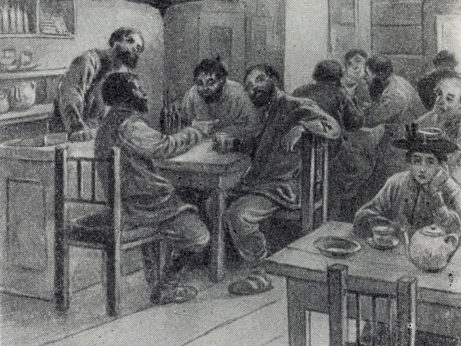To me, George Saunders is one of our best, and most brilliant, “Catholic” writers (without calling himself, or for all I know, even being a Catholic).
One of the rare literary writers who has achieved mainstream success, his stories often chart a hero’s journey undertaken by a comically conflicted, clueless, culturally indoctrinated, downtrodden, middle-America protagonist, and often culminate in a life-or-death sacrifice.
He satirizes consumer culture, mass media, Orwellian doublespeak, and the Disneyfication of the sacred.
“The Tenth of December,” the eponymous story in his award-winning 2013 collection, spotlights a kind of contemporary, tragicomic Holy Family: there’s a Mary figure (Saunders often features valiant, deeply flawed mothers), a Christ Child figure, and a stepfather-Joseph figure.
“They were sorry,” runs one passage, “they were saying with their bodies, they were accepting each other back, and that feeling, that feeling of being accepted back again and again, of someone’s affection for you always expanding to encompass whatever new flawed thing had just manifested in you, that was the deepest, dearest thing”…
Also, I once wrote Saunders a somewhat insanely long fan letter about the genius of his short story “The End of FIRPO in the World.” And he wrote back.
As writers, he says, always we should surprise, entertain, take risks, work hard, be true. He’s taught since 1997 at Syracuse University. His curriculum includes a class on the 19th-century Russian short story in translation.
Which brings me to his 2021 book: “A Swim in a Pond in the Rain: In Which Four Russians Give a Master Class on Writing, Reading, and Life.”

One of the four is Chekhov, universally acknowledged as one of the world’s greatest short story writers and playwrights. The other three are Turgenev, Tolstoy, and Gogol.
The seven stories he chooses are ones he loves and has found “eminently teachable” over the years: Chekhov’s “In the Cart,” “The Darling,” and “Gooseberries”; Tolstoy’s “Master and Man” and “Alyosha the Pot”; Turgenev’s “The Singers”; and Gogol’s “The Nose.”
The stories are not necessarily easy, says Saunders; neither are they without flaws. But for purposes of studying the short story itself, these are “simple, clear, elemental.”
They’re the equivalent for the budding writer of a young musician studying Bach.
They’re simple but moving, Saunders says. We care about what happens in them.
Those two ideas alone seem radical in a culture where literati magazine short story characters sometimes lack all personality, reason for living, and even names, as if a name were too much of a commitment; too much effort.
Nineteenth-century Russian writers, by contrast, spun on a different axis. “They seemed to regard fiction not as something decorative but as a vital moral-ethical tool. They changed you when you read them, made the world seem to be telling a different, more interesting story, a story in which you might play a meaningful part, and in which you had responsibilities.”
Saunders slowly, painstakingly unpacks the seven stories:
“Once we begin reading the stories, which are, for the most part, quiet, domestic, and apolitical, this idea may strike you as strange; but this is a resistance literature, written by progressive reformers in a repressive culture, under constant threat of censorship, in a time when a writer’s politics would lead to exile, imprisonment, and execution.”
“The resistance in the stories is quiet, at a slant, and comes from perhaps the most radical idea of all: that every human being is worthy of attention and that the origins of every good and evil capability of the universe may be found by observing a single, even very humble, person and the turnings of his or her mind.”
While he’s teaching us how to read, he’s also teaching us how to write.
“What makes a piece of writing a story is that something happens within it that changes the character forever.”
“A story is a series of incremental pulses, each of which does something to us. Each puts us in a new place, relative to where we just were.”
“Always be escalating. That’s all a story is, really: a continual system of escalation. A swath of prose earns its place in the story to the extent that it contributes to our sense that the story is (still) escalating.”
And as the title of the book implies, all along Saunders is also teaching us how to be more fully alert, alive, and human.
On the other hand, he cautions in a summing-up chapter, let’s not overburden fiction with unrealistic expectations. The great flowering of 19th-century Russian literature did nothing, for example, to forestall the bloodbath of the Stalinist era.
Still, excellent fiction is a good in and of itself. Our ability to imagine the experiences of other people expands. We feel we exist on a continuum with others. Our capacity for language is reenergized. We find ourselves liking the world more.
In the end, “Where else can we go, but the pages of a story, to prefer so strongly, react without rationalization, love or hate so freely, be so radically ourselves?”

